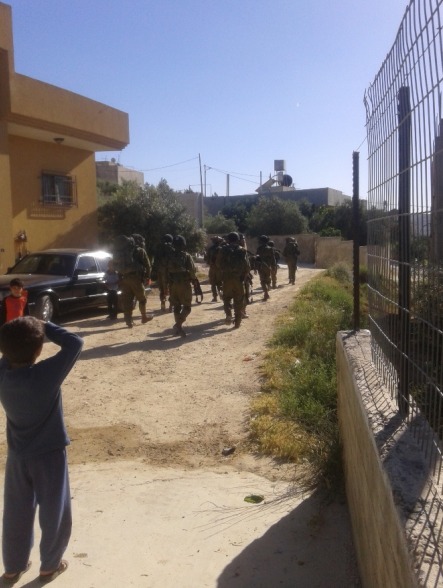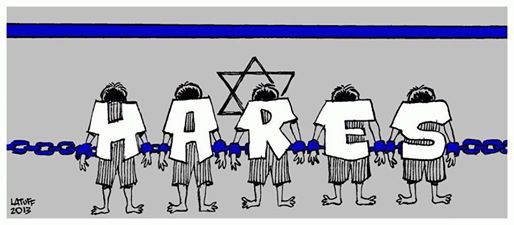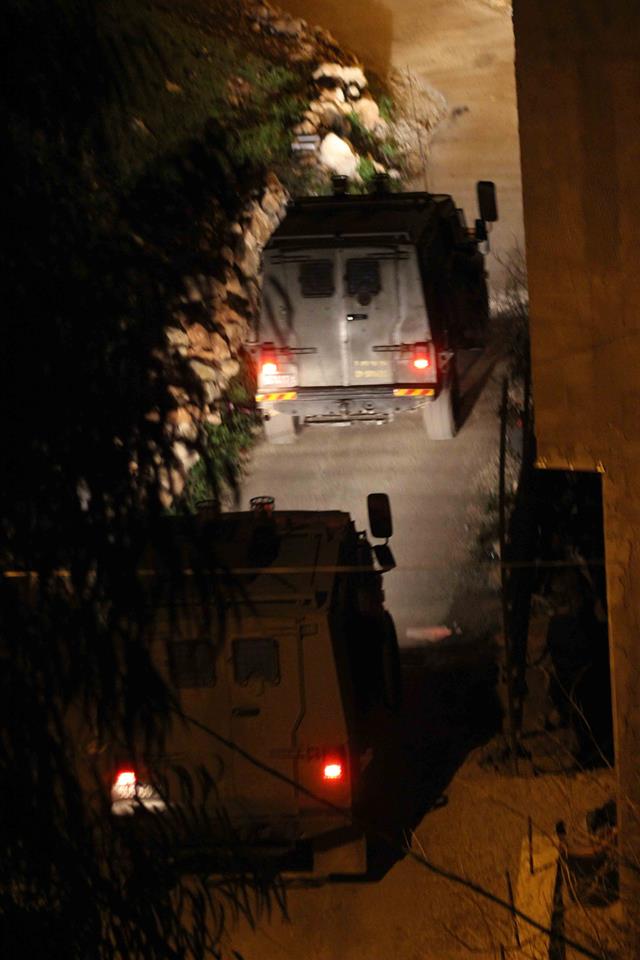Tag: Night Raid
-

UPDATED: Murad Eshtewi, and four Palestinian youths from Kafr Qaddum, still under custody after court hearing
12th May 2014 | International Solidarity Movement, Nablus Team | Kafr Qaddum, Occupied Palestine Second Update Tuesday 13th May: Murad Eshtwei’s next court day is Sunday 18th May at Ofer prison. Ream Harham, Mustafa Eshtewi, and Ahmad Hassan Eshtewi have a court date tomorrow in Ofer court at 14:30. Reslan Joma will have his court date next week.…
-

Harassment in Awarta
2nd May 2014 | International Solidarity Movement, Nablus Team| Awarta, Occupied Palestine At 4.30 am on Wednesday the 30th of April; a group of Israeli soldiers broke into a family home in the village of Awarta, near the illegal settlement of Itamar. 11 soldiers woke up the family, claiming that it was “security search”. A member of the family…
-

Six arrested in Burqa (Nablus) by the Israeli army with no reasons given
25th April 2014 | International Solidarity Movement, Nablus Team| Burqa, Occupied Palestine On the night of the 23rd to 24th of April, approximately 24 Israeli military vehicles entered the town of Burqa and arrested six Palestinian youths. The Israeli army forced its way into five out of the six houses, using a device to break open the doors.…
-
One year on: the Hares Boys
18th March 2014 | The Hares Boys | Occupied Palestine Yesterday the Hares Boys, who are being charged with 20 counts of attempted murder with no evidence whatsoever, have been in an Israeli prison for one year. Now is more important than ever to fully understand the circumstances surrounding the unlawful arrest and imprisonment of Mohammad Suleiman, Ammar…
-
Night raid and arrests in Kafr Qaddum
20th February 2014 | International Solidarity Movement, Nablus Team | Kafr Qaddum, Occupied Palestine On Thursday the 20th of February, the violent arrests of seven villagers occurred early in the morning in the village of Kafr Qaddum. Four of those arrested, including the coordinator of the weekly demonstration, were released after six hours. The three…


